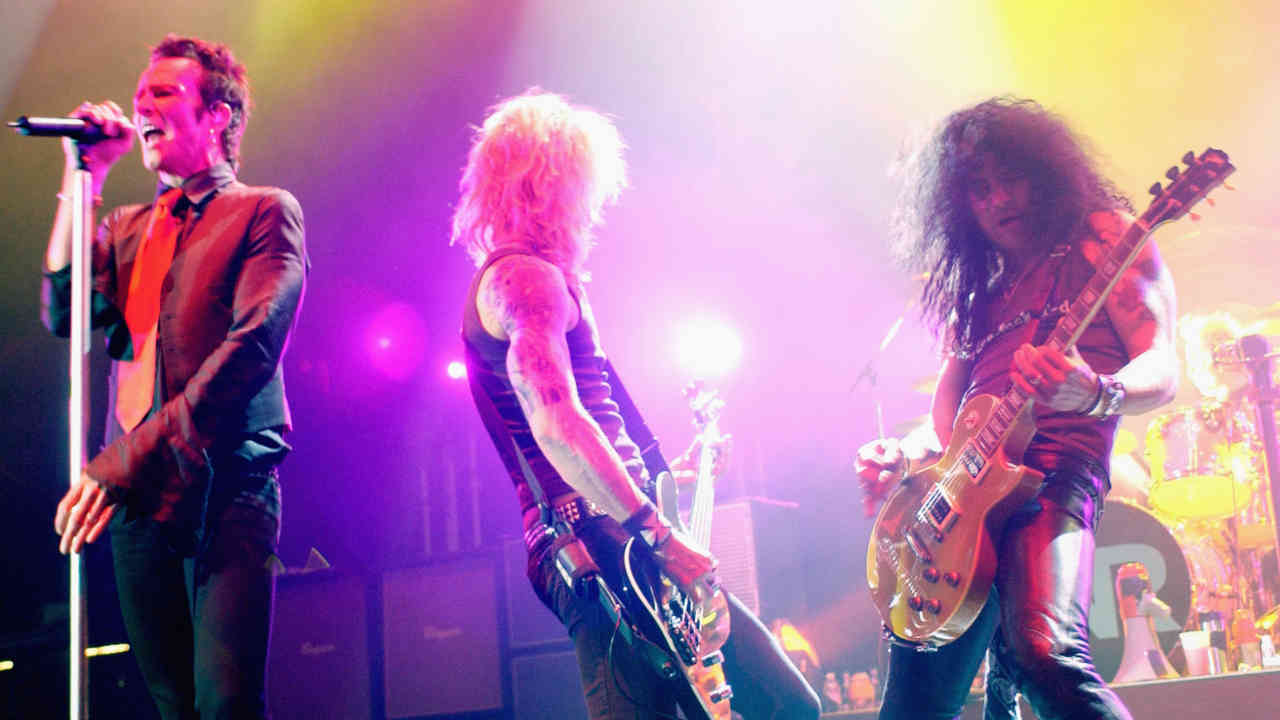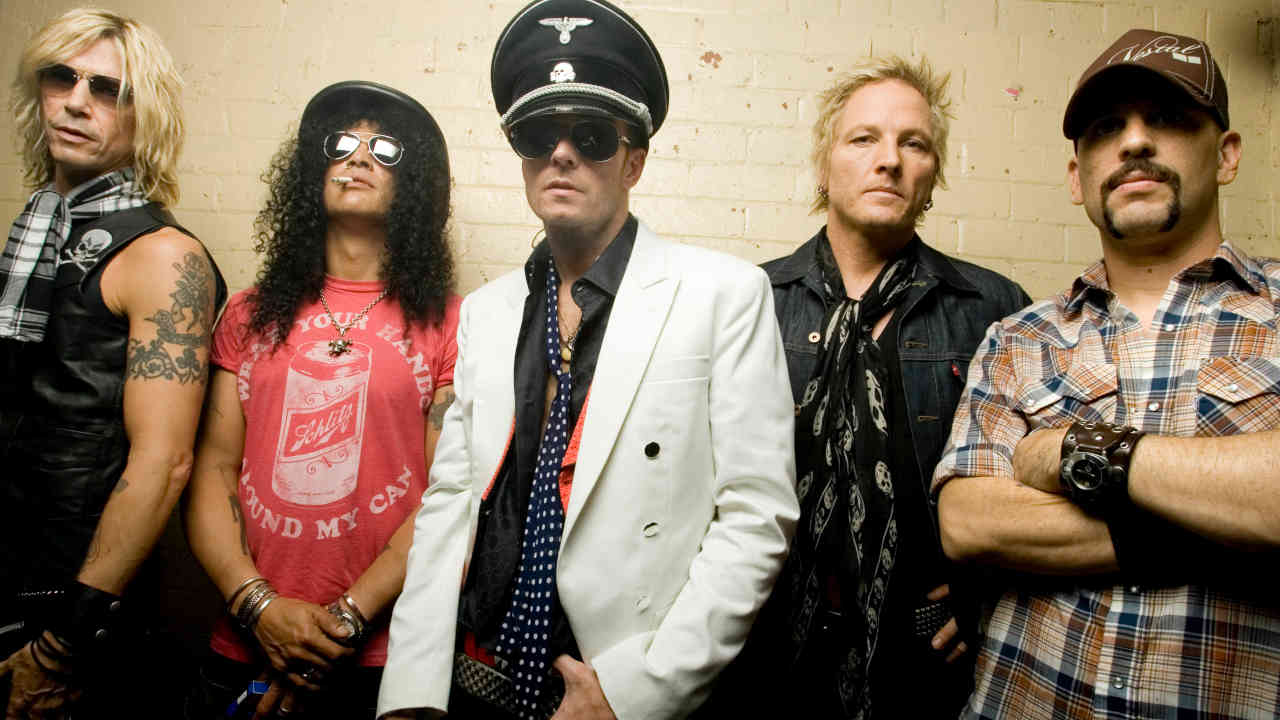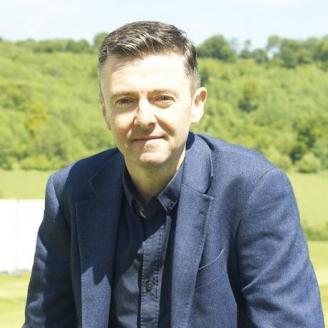In 2004, former Guns N’ Roses bandmates Slash, Duff McKagan and Matt Sorum were all out of their old group, presumably never to return. But with wayward Stone Temple Pilots singer Scott Weiland onboard, they launched the supergroup Velvet Revolver –even if, as Slash told Classic Rock at the time, their future was as unpredictable as their past.
Slash is talking in his familiar, woozy SoCal drawl. “Hey,” he says, “it’s the second day of this fucking two-day picture shoot, man. You can always tell when you got a record coming out, because all this bullshit starts up again…”
As laid-back and straight as he might be these days, the guitarist can’t keep the excitement out of his voice when he talks about this particular new record of his, though. Because for all of the knockabout rock’n’roll kicks of his band Snakepit and the many other GN’R spin-offs and side projects he’s been involved in, Velvet Revolver represents a return to the big-time for assorted members of two of the last decade’s biggest bands: Guns N’ Roses and Stone Temple Pilots.
Slash and ex-GN’R bassist Duff McKagan and drummer Matt Sorum began jamming around again in 2001. As their writing gathered momentum and the good vibes returned, in his head Slash began hearing one particular voice singing their material: that of Stone Temple Pilots frontman Scott Weiland. Slash sent the STP singer a CD of some of their songs, and word came back that Weiland liked them very much.
It was never going to be that easy, though. It took Weiland a year to disentangle himself from the mess that STP had become. The GN’R three had by then become four with the addition of guitarist Dave Kushner, a friend of Slash’s since junior high school.
“Eventually,” Slash says, “after we’d been through this tortuous process of trying to find a singer, doing however many fucking auditions, we got this offer to do a couple of movie soundtracks. So I said to Scott, ‘Let’s just hang out and make music. But right from the start it was this great thing – that doesn’t usually happen twice. It was very organic and natural. We hooked up in April last year and we wrote over the summer. We did one gig just for the fuck of it, and that really cemented it. You can sometimes get away with shit in the studio, but there’s nowhere to hide up on stage. It was just that chemistry right away. Why we all work together, I don’t know.”

The gig was at a small theatre, the El Rey in Los Angeles, and it was the first time that Slash had ever seen Weiland sing live; the singer’s skill and passion enthralled him. With the deal sealed, the band recorded their forthcoming debut album, Contraband, in the last three months of 2003, co-producing with Josh Abraham. They boiled down the final running order from some 50 original songs.
“I’m telling you, every fucking track of these twelve is something different,” Slash says of the results. “It’s like a journey. There are no fillers. Every song has its own vibe. It’s a really fucking killer record.”
The stand-out tunes are Slither, a song that Weiland describes as having “that STP vibe”, and Falling To Pieces, a show-stopping ballad in the manner of GN’R’s November Rain. There’s even “an older punk track”, Illegal Eye.
Weiland, too, has been seduced by the combination of sounds: “It’s a true representation of STP’s music and also the best of Guns N’ Roses’ music when they were at their best – vicious, streamlined, living off strippers.”
Just one dark cloud has blighted this idyllic horizon: as the band worked on the album, Weiland had to go back into rehab, falling victim once again to his well-known junk habit. It meant that Slash and co were once more working with a singer whose behaviour was affecting the course of their professional lives. How come?
"In reality Scott’s dealing with stuff," Slash replies. "He’s such an amazing talent.”
Clean again, Weiland is back taking a full part in the build-up to the album’s release. However, the true test will come when the band hit the road. Plans include some low-key English and European dates around the release of the album, followed by some extensive work in America.
“I would like to think that being in the band has helped Scott,” Slash says. “But you would have to ask him. I hope that working with us has made it a little easier, man. I mean, shit, we’ve all had our problems in the past.”
Velvet Revolver are attempting to absorb those lessons and learn from them, in both a personal and business sense.
“As naïve as it sounds, we didn’t want any of this bullshit about X amount of dollars for this or whatever; all the obvious things,” says Slash. “My whole thing was just to have a fucking amazing rock’n’roll band. Scott was the only guy who had that voice, what we thought was a genuine rock’n’roll voice. For most artists today it’s not about rock’n’roll any more, but it is for us. I don’t care about baggage or any of that shit. It’s not my big concern what everyone is going to think. I don’t have time to sort them all out. I just want the record to come out and to go on the road. I don’t care what size theatres or arenas or whatever, just fucking play, man. That’s what it’s about, after all.
“We lost sight of that in Guns. Once we’d played a stadium, Axl would never go back, it was stadiums or nothing. But to me it’s about being close to the crowd, too. I thought I’d got it out of my system with Snakepit, which was a kind of haphazard, thrown together thing, but it never really goes.”
To that end, Velvet Revolver are expected to play in the UK later in 2004.
“Hey, you gotta remember I was born there, man,” Slash says. “Stoke-on-Trent. And we just have very warm feelings about it there, from that first time with Guns. I just feel partial to the place. It seems like people take you at face value there.”
And with that, Slash is off to face the cameras and kick the big machine into action.
Originally published in Classic Rock issue 64


